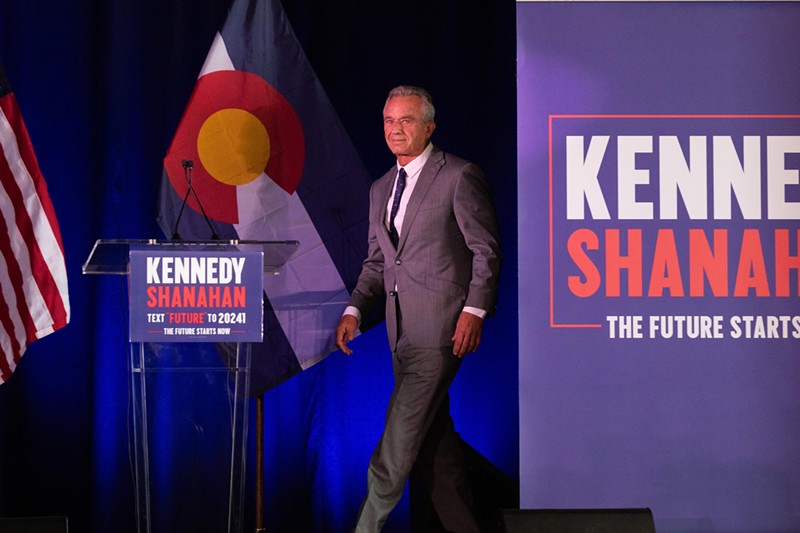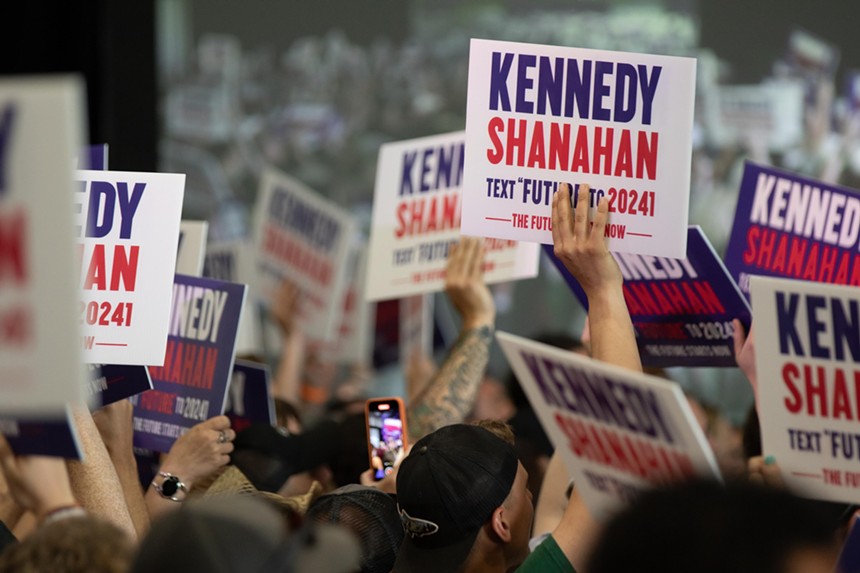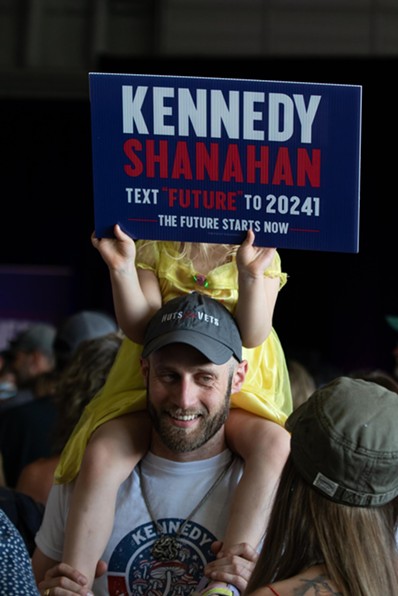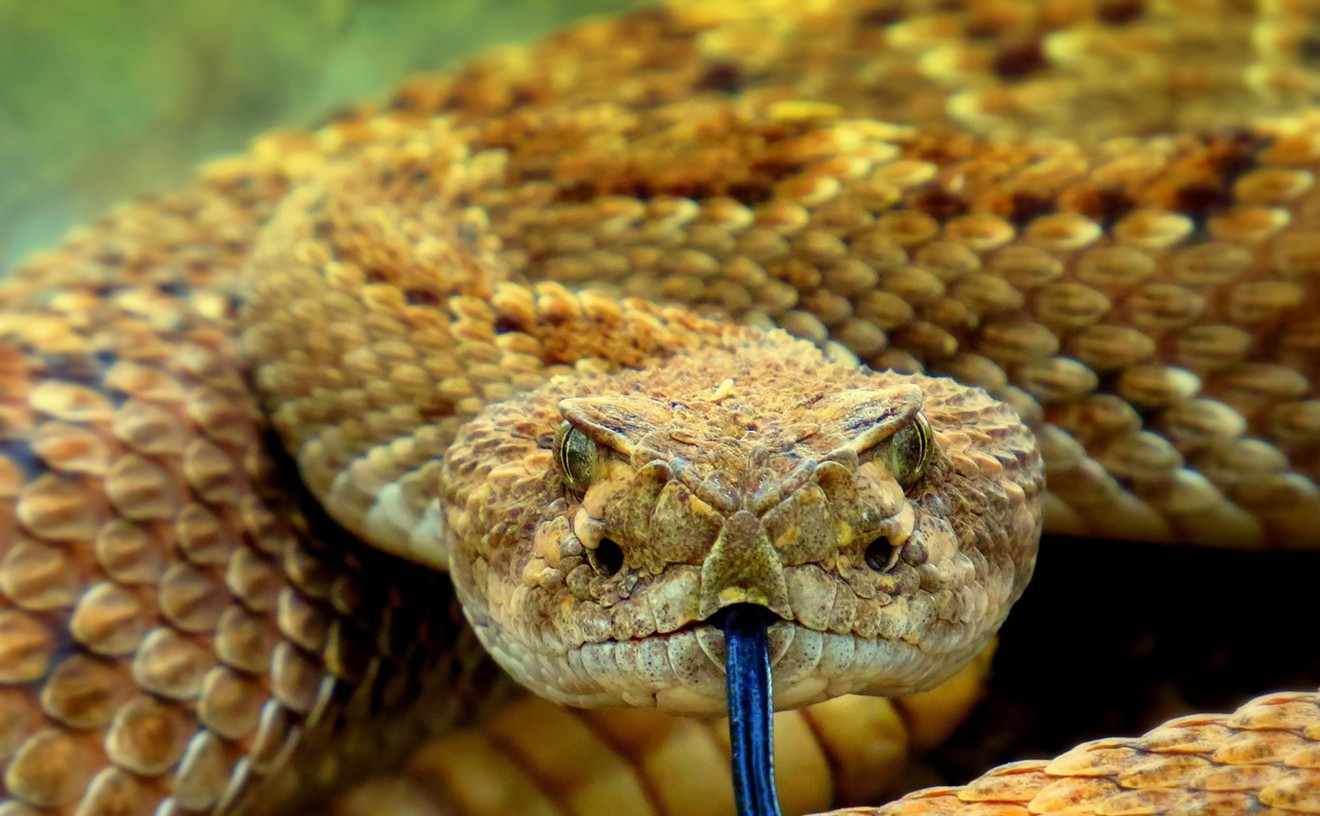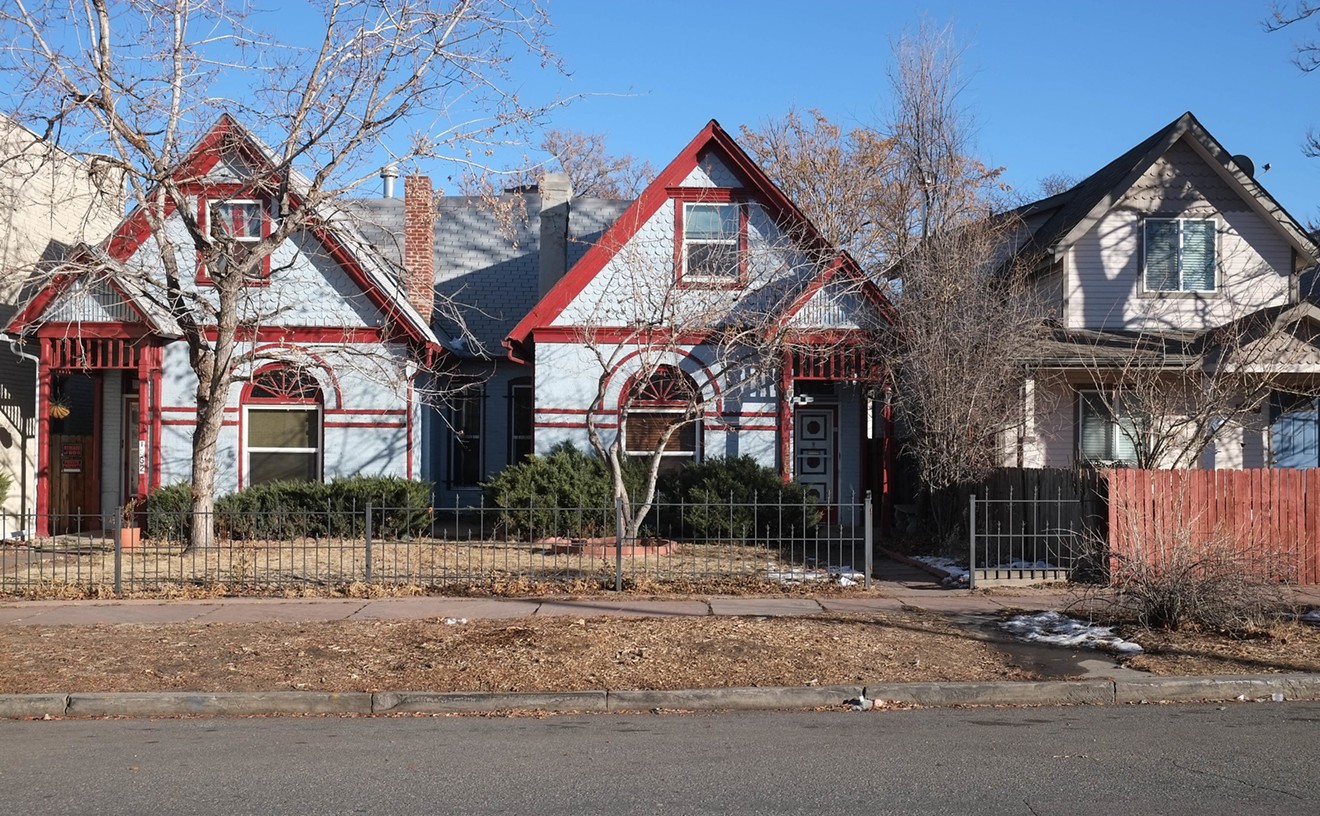The Libertarian Party was launched in December 1971 from a house in Colorado Springs when founding members thought the Nixon-era Republican and Democratic parties had deviated too far from the ideals of the Founding Fathers. Over the past fifty years, the Libertarian movement has expanded to all fifty states, but now the Colorado branch of the national party has decided to go its own way.
In an unprecedented move, the Libertarian Party of Colorado (LPCO) announced on July 2 that Independent candidate Robert F. Kennedy Jr. and his running mate, Nicole Shanahan, would replace the nationally nominated Chase Oliver and Mike terr Maat in the Libertarian slot on Colorado's ballot for president of the United States.
As an independent, Kennedy has made it on the ballot in nine states by gathering signatures from voters. As deadlines to submit signatures close around the country, though, the Kennedy campaign is trying out a new strategy: becoming the nominee of small, third parties.
That strategy has now worked for Kennedy in three states. He will be on the ballot in California as the nominee for the American Independent Party, in Michigan as the nominee of the Natural Law Party, and in Florida as the nominee of the Reform Party. Colorado could be the fourth.
The process to replace the Oliver/terr Maat ticket with the Kennedy/Shanahan ticket here began in June when the state party decided not to nominate Oliver. In a lengthy statement released on X, the LPCO listed several disagreements that Colorado members had with Oliver and terr Maat.
"After consulting with a number of people — parliamentarians, lawyers, with our own constituents, with different members of the Board, the decision came to go ahead and do that," says Jordan Marinovich, LPCO communications director. "Even though it's unprecedented, it's still within our discretion."
While producing the actual ballot is the job of the Colorado Secretary of State's Office, it has not yet received anything from the LPCO regarding replacing the national Libertarian Party candidates with RFK Jr. "All we can say at this point is that we have only received complete paperwork from the National Libertarian Party," says Jack Todd, spokesman for the office. "Anything else would be speculation on our part."
The Kennedy campaign submitted over 30,000 signatures — more than double the required 12,000 — to appear on the ballot as an independent on July 11. According to Todd, Colorado law does not permit a candidate to appear on a ballot with multiple affiliations.
Should Kennedy's signatures be approved, qualifying him to appear on the ballot as an Independent, and the LPCO also submits nominating paperwork for Kennedy as the state's Libertarian candidate, RFK's campaign will have to make the final decision on where his name goes, Todd says.
In deciding not to support the national Libertarian presidential candidate, Marinovich says the Colorado branch considered a number of options, including leaving the ticket blank. But after the idea was floated in an executive session, members eventually decided to partner with Kennedy.
One of the requirements for the partnership moving forward was that Kennedy sign a Presidential Liberty Pledge — promising to uphold twelve policy positions if elected. Among those positions are removing presidential war powers, pardoning Julian Assange and pledging to move toward the dissolution of U.S. intelligence agencies.
"While we definitely don't agree with everything that RFK proposes, there is enough overlap there, and with that pledge, we felt pretty comfortable from a philosophical perspective," Marinovich says.
While the Colorado branch recognizes the Libertarian Party's long history in Colorado, members think it's time for something new.
"While I appreciate all of the tremendous efforts that our predecessors put into this party — not just nationally, but specifically in Colorado — at a certain point you have to look at the history, if not just the recent history, and recognize what worked and what didn't and try new things," Marinovich says.
According to data from the Secretary of State's Office, as of July 1, there were 37,374 registered Libertarians in Colorado, making it the third largest party in terms of registration. That doesn't include the 48 percent of all registered voters who are unaffiliated, and Marinovich sees those people as an opportunity to break out of the two-party grip on elections.
This is the time to experiment with new ideals and candidates, he says, adding that this partnership with Kennedy should be welcomed, not castigated. "We can still keep our principles, we can still be the standard bearer for liberty for the entire world, but there's only so much we can do throwing stones from our ivory tower of purity," Marinovich says.
While Kennedy is only polling at about 10 percent nationally, he has the potential to create major waves in November.
For months, Kennedy has called on President Joe Biden to give him Secret Service protection, given the history with his last name. After the attempted assassination of former President Donald Trump at a Pennsylvania campaign rally, everyone from Governor Jared Polis to Trump himself joined those calls. They were answered when Secretary of Homeland Security Alejandro Mayorkas authorized Secret Service protection for Kennedy on July 15 at the direction of the president.
The possibility of Kennedy winning a state like Colorado has some voters, including Marinovich, hoping that this will be a contingent election, sending the decision to Congress, in accordance with the 12th Amendment.
"It will be a win if we turn Colorado to a toss-up. But if that tossup snowballs into a contingent election, it could pretty much be assumed that the Libertarian Party had a major role in that," Marinovich says. "It cements that name in the minds of all Americans moving forward, and that is a level of notoriety that we need to step in and become a major party."
The last time the U.S. saw a contingent election was in 1824, when John Quincy Adams won the presidency despite losing both the popular vote and the electoral college.
Even with his battles for ballot access in every state, a Kennedy win is still a long shot. But Marinovich keeps pushing the possibility.
"I urge people, especially anybody who is unaffiliated, disaffected, disenfranchised, sick of the two-party system and has been hoping and wishing and praying for another option, that this is the time, the place, the opportunity to change things forever," he says.
When Kennedy made a campaign stop in Aurora in May, it was announced that he will be the keynote speaker at the Independent National Convention, slated for September in Denver. Despite his new partnership with the LPCO, Kennedy is still listed as heading that lineup.
[
{
"name": "Air - MediumRectangle - Inline Content - Mobile Display Size",
"component": "12017618",
"insertPoint": "2",
"requiredCountToDisplay": "2",
"watchElement": ".fdn-content-body",
"astAdList": [
{
"adType": "rectangle",
"displayTargets": "mobile"
}
]
},{
"name": "Editor Picks",
"component": "17242653",
"insertPoint": "4",
"requiredCountToDisplay": "1",
"watchElement": ".fdn-content-body",
"astAdList": [
{
"adType": "rectangle",
"displayTargets": "desktop|tablet"
},{
"adType": "rectangle",
"displayTargets": "desktop|tablet|mobile"
}
]
},{
"name": "Inline Links",
"component": "18838239",
"insertPoint": "8th",
"startingPoint": 8,
"requiredCountToDisplay": "7",
"maxInsertions": 25
},{
"name": "Air - MediumRectangle - Combo - Inline Content",
"component": "17261320",
"insertPoint": "8th",
"startingPoint": 8,
"requiredCountToDisplay": "7",
"maxInsertions": 25,
"watchElement": ".fdn-content-body",
"astAdList": [
{
"adType": "rectangle",
"displayTargets": "desktop|tablet"
},{
"adType": "rectangle",
"displayTargets": "desktop|tablet|mobile"
}
]
},{
"name": "Inline Links",
"component": "18838239",
"insertPoint": "8th",
"startingPoint": 12,
"requiredCountToDisplay": "11",
"maxInsertions": 25
},{
"name": "Air - Leaderboard Tower - Combo - Inline Content",
"component": "17261321",
"insertPoint": "8th",
"startingPoint": 12,
"requiredCountToDisplay": "11",
"maxInsertions": 25,
"watchElement": ".fdn-content-body",
"astAdList": [
{
"adType": "leaderboardInlineContent",
"displayTargets": "desktop|tablet"
},{
"adType": "tower",
"displayTargets": "mobile"
}
]
}
]

